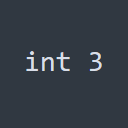The current human population is about 7.5 billion (when I was a kid, it was more like 5 billion). Right now, the population is doubling about once every 64 years. If it continues to double at that rate, and humans don’t colonize other worlds, then you can calculate that, less than 3000 years from now, the entire earth, all the way down to the core, will be made of human flesh.


The tragedy of the Commons though is not the idea that sometimes Commons are mismanaged. It is an economic theory that says Commons inevitably are mismanaged as simple self interest causes people to “rationally” renege on any collective agreements. Therefore, so it goes, we need to sell everything for only by appealing to base, short-term, greed will things flourish as private property encourages people to make their land more productive.
This is deeply flawed, as Elenore demonstrated time and time again. By repeating this notion you spread the sort of flawed thinking uses to justify the neoliberal ideology that has so poisoned the world.
There is no such rule of Commons mismanagement, like all things systems can break but it is not inevitable or even particularly likely except under other pressures. Indeed commons are often extremely resilient, and so we should not overemphasise times when they fail.
The tragedy of the commons is a metaphoric label for a concept that is widely discussed, and criticised, in economics, ecology and other sciences. According to the concept, should many people enjoy unfettered access to a finite, valuable resource such as a pasture, they will tend to overuse it and may end up destroying its value altogether. Even if some users exercised voluntary restraint, the other users would merely supplant them, the predictable result a tragedy for all. – Wikipedia
So no, it TotC is the concept of a descriptive problem, for which many people (all the way back to Aristotle) might have suggested prescriptions, but TotC does not include those prescriptions, rather a recurring pattern of negative consequences due to natural human behavior.
In classical capitalist economics, the common solution is strictly-enforced regulation by a public serving government (which itself is susceptible to regulatory capture, a particular irony since I was in Economics 101 when Reagan was in office stripping away the government power to regulate). And this phenomenon is highlighted by Karl Marx in Das Kapital so even when we can poke at a given attempt to fix the TotC problem, the solution fails and the problem persists, and may well be humanity’s last great filter.